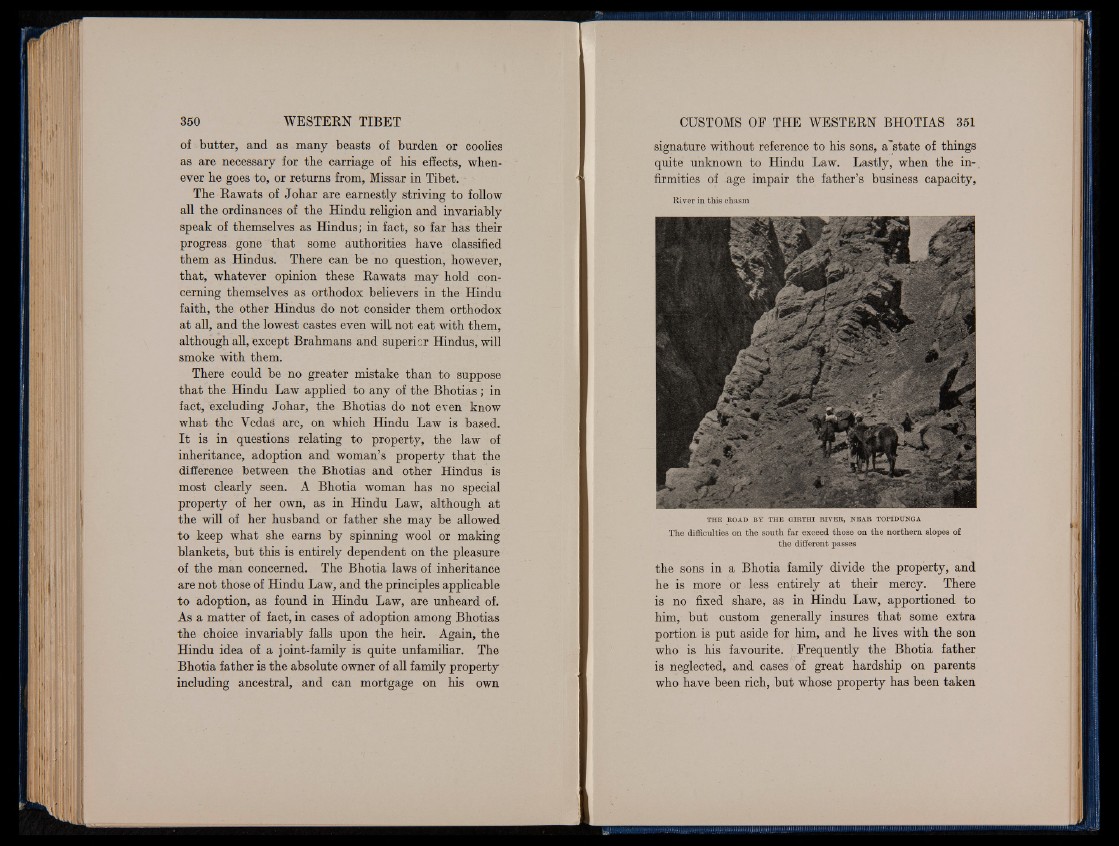
of butter, and as many beasts of burden or coolies
as are necessary for the carriage of his effects, whenever
he goes to, or returns from, Missar in Tibet.
The Rawats of Johar are earnestly striving to follow
all the ordinances of the Hindu religion and invariably
speak of themselves as Hindus; in fact, so far has their
progress gone that some authorities have classified
them as Hindus. There can be no question, however,
that, whatever opinion these Rawats may hold concerning
themselves as orthodox believers in the Hindu
faith, the other Hindus do not consider them orthodox
at all, and the lowest castes even will not eat with them,
although all, except Brahmans and superior Hindus, will
smoke with them.
There could be no greater mistake than to suppose
that the Hindu Law applied to any of the Bhotias; in
fact, excluding Johar, the Bhotias do not e\en know
what the VedaS are, on which Hindu Law is based.
It is in questions relating to property, the law of
inheritance, adoption and woman’s property that the
difference between the Bhotias and other Hindus is
most clearly seen. A Bhotia woman has no special
property of her own, as in Hindu Law, although at
the will of her husband or father she may be allowed
to keep what she earns by spinning wool or making
blankets, but this is entirely dependent on the pleasure
of the man concerned. The Bhotia laws of inheritance
are not those of Hindu Law, and the principles applicable
to adoption, as found in Hindu Law, are unheard of.
As a matter of fact, in cases of adoption among Bhotias
the choice invariably falls upon the heir. Again, the
Hindu idea of a joint-family is quite unfamiliar. The
Bhotia father is the absolute owner of all family property
including ancestral, and can mortgage on his own
signature without reference to his sons, a’state of things
quite unknown to Hindu Law. Lastly, when the infirmities
of age impair the father’s business capacity,
River in this chasm
TTTTC ROAD BY THE GIRTHI RIVER, NEAR TOPIDUNGA
The difficulties on the south far exceed those on the northern slopes of
the different passes
the sons in a Bhotia family divide the property, and
he is more or less entirely at their mercy. There
is no fixed share, as in Hindu Law, apportioned to
him, but custom generally insures that some extra
portion is put aside for him, and he fives with the son
who is his favourite. Frequently the Bhotia father
is neglected, and cases of great hardship on parents
who have been rich, but whose property has been taken